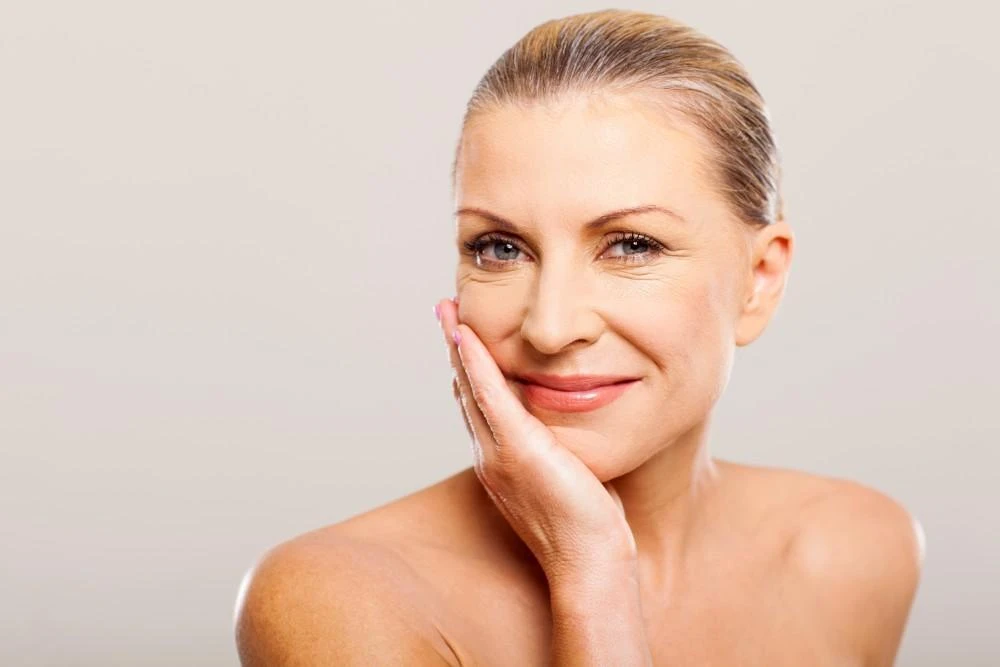Consisting of amino acids and providing strength and structure to your skin, hair, bones, muscles, tendons, ligaments, and other connective tissues, collagen makes up approximately 30% of the body’s protein. Although studies show that aging causes collagen production decline by about 1-1.5% yearly after early adulthood, there are several ways to increase collagen production at any age.
Schedule an evaluation with Leslie at one of our Wrinkle Fairy offices in Arlington Heights, Gold Coast Chicago, Oakbrook Terrace, or Naperville, Illinois, to determine which collagen-boosting treatment is right for you.
Collagen basics
There are nearly 30 different types of collagen identified in the body. Many types are found in your skin, including type 1 that makes up 90% of the body’s collagen.
Aging causes us to naturally produce less collagen, and existing collagen in our bodies breaks down at a faster rate and becomes poorer quality the older we get. At about age 60 or after menopause in women, collagen decline is significant.
Signs of collagen loss
The signs of reduced collagen formation include:
- Wrinkled, lax, and sagging skin
- Hallowing around your face and eyes
- Slowed hair growth
- Hair thinning
- Older appearance
- Weakening muscles
- Muscle aches
- Joint pain or stiffness
The good news is that making lifestyle modifications and choosing collagen-boosting aesthetics treatments at Wrinkle Fairy: Leslie Forrester can reduce many of these hallmark signs of aging.
Factors that promote collagen reduction
Things that speed up age-related collagen loss include:
- Smoking
- Unprotected sun exposure
- Poor dietary habits, especially excess added sugar and refined carbohydrates
- Pollution
- Autoimmune diseases
- Aging
Some of these factors can’t be helped, but adopting healthy habits can dramatically lessen the rate of collagen loss over time.
Ways to boost collagen formation
Lifestyle changes that support increased collagen production include:
- Avoid pollution
- Don’t smoke
- Wear sunscreen when outdoors
- Avoid tanning beds
- Eat nutritious foods, including fruits, vegetables, protein, and healthy fats
- Avoid added sugars, white bread, and other refined grains
- Follow a Mediterranean diet
- Boost key nutrients with nutrient-dense foods and supplements
A few examples of collagen-supporting nutrients include vitamin C, copper, zinc, and amino acids, such as glycine and proline. Collagen peptides are available via dietary supplements.
Aesthetics treatments that enhance collagen growth include:
Leslie works with you to develop a collagen-stimulating treatment regimen that maximizes anti-aging results, taking years off your appearance and slowing the rate of further collagen loss.
To learn more about your collagen-boosting options and which are best suited for your goals, contact us today at Wrinkle Fairy by phone or request an appointment online.



